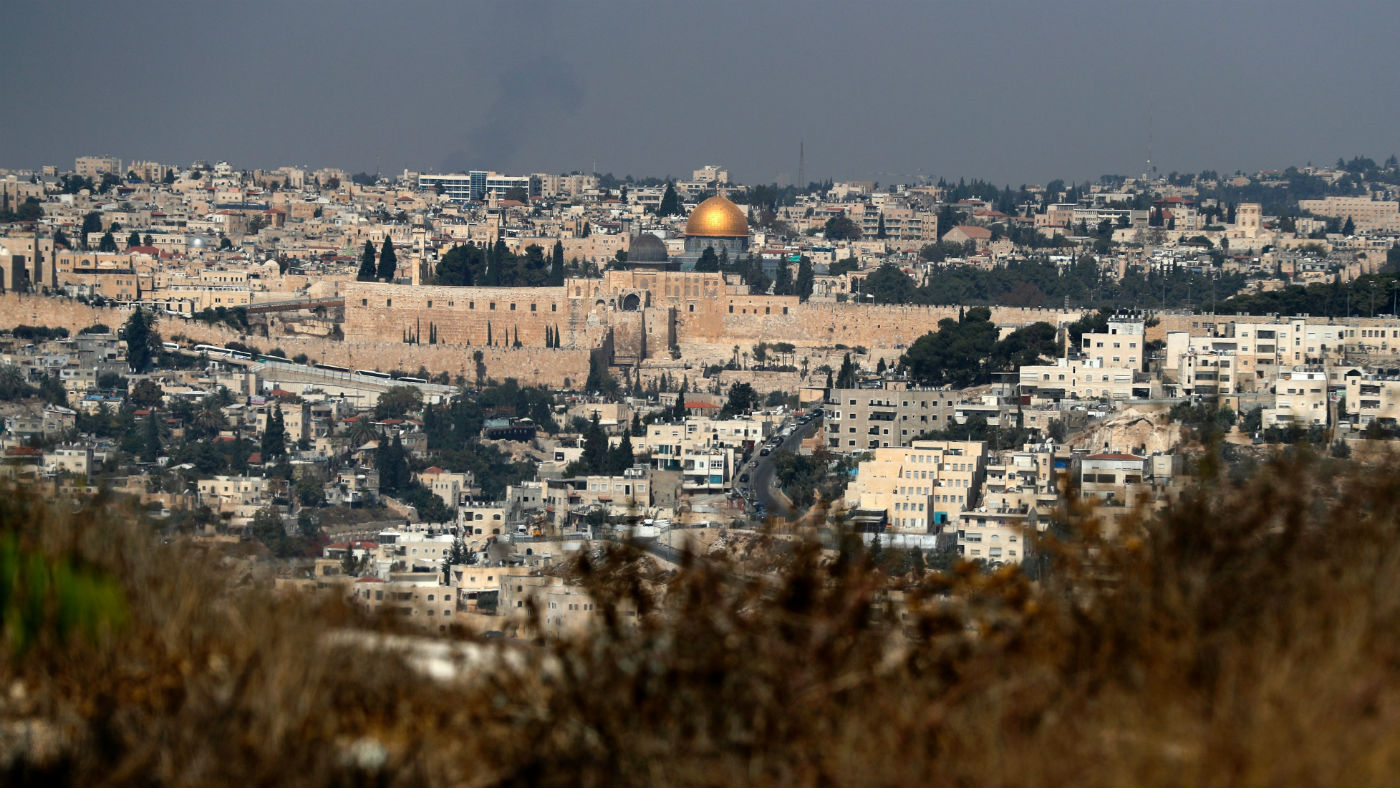Why has US reversed policy on Israeli settlements?
US secretary of state says Washington no longer finds settlements illegal

A free daily email with the biggest news stories of the day – and the best features from TheWeek.com
You are now subscribed
Your newsletter sign-up was successful
The US has announced that it no longer considers Israeli settlements in the occupied West Bank to be inconsistent with international law.
Announcing the shift in position, which reverses four decades of US policy, Secretary of State Mike Pompeo told the media that “after carefully studying all sides of the legal debate, the United States has concluded that the establishment of Israeli civilian settlements in the West Bank is not, per se, inconsistent with international law”.
He added: “Calling the establishment of civilian settlements inconsistent with international law hasn't worked. It hasn't advanced the cause of peace.”
The Week
Escape your echo chamber. Get the facts behind the news, plus analysis from multiple perspectives.

Sign up for The Week's Free Newsletters
From our morning news briefing to a weekly Good News Newsletter, get the best of The Week delivered directly to your inbox.
From our morning news briefing to a weekly Good News Newsletter, get the best of The Week delivered directly to your inbox.
Israel welcomed the move, with Prime Minister Benjamin Netanyahu saying the development “rights a historical wrong”. He called on leaders of other countries to follow suit.
However, other reactions have been hostile. The chief Palestinian negotiator, Saeb Erekat, said Washington’s decision was a risk to “global stability, security, and peace” and said it threatened to replace international law with “the law of the jungle”.
Writing on Twitter, Jordan’s foreign minister, Ayman Safadi, said that settlements were “a blatant violation” of international law which would have “dangerous consequences”.
The European Union’s foreign policy chief, Federica Mogherini said the EU policy on Israeli settlements “all settlement activity is illegal under international law and it erodes the viability of the two-state solution and the prospects for a lasting peace”.
A free daily email with the biggest news stories of the day – and the best features from TheWeek.com
Settlements are one of the most divisive elements in the conflict between Israel and the Palestinians. These communities, built on land occupied by Israel in the 1967 Six Day War are widely considered illegal under international law, though Israel has always disputed this.
About 600,000 Jews live in about 140 settlements built since Israel's occupation of the West Bank and East Jerusalem, and these communities are considered a significant obstacle to peace.
Barbara Plett-Usher, the BBC’s Middle East correspondent, said in the wake of Pompeo’s announcement, any resolution to the conflict “is now more likely to be on Israel's terms, since it is by far the stronger party”.
The Guardian says the shift on settlements is “an extension of previous Trump policy, which has been marked by a series of radical pro-Israeli moves and the abandonment of Washington’s historic role as broker”.
It adds that Trump has already recognised Jerusalem as the Israeli capital, and Israeli sovereignty in the occupied Golan Heights.
Israeli newspaper Haaretz adds that the Trump administration has also made other highly partial moves, such as “slashing the budgets of the Palestinian Authority and the UNRWA the United Nations' agency to aid Palestinian refugees”.
–––––––––––––––––––––––––––––––For a round-up of the most important stories from around the world - and a concise, refreshing and balanced take on the week’s news agenda - try The Week magazine. Start your trial today–––––––––––––––––––––––––––––––
-
 Political cartoons for February 14
Political cartoons for February 14Cartoons Saturday's political cartoons include a Valentine's grift, Hillary on the hook, and more
-
 Tourangelle-style pork with prunes recipe
Tourangelle-style pork with prunes recipeThe Week Recommends This traditional, rustic dish is a French classic
-
 The Epstein files: glimpses of a deeply disturbing world
The Epstein files: glimpses of a deeply disturbing worldIn the Spotlight Trove of released documents paint a picture of depravity and privilege in which men hold the cards, and women are powerless or peripheral
-
 Epstein files topple law CEO, roil UK government
Epstein files topple law CEO, roil UK governmentSpeed Read Peter Mandelson, Britain’s former ambassador to the US, is caught up in the scandal
-
 Iran and US prepare to meet after skirmishes
Iran and US prepare to meet after skirmishesSpeed Read The incident comes amid heightened tensions in the Middle East
-
 Israel retrieves final hostage’s body from Gaza
Israel retrieves final hostage’s body from GazaSpeed Read The 24-year-old police officer was killed during the initial Hamas attack
-
 China’s Xi targets top general in growing purge
China’s Xi targets top general in growing purgeSpeed Read Zhang Youxia is being investigated over ‘grave violations’ of the law
-
 Panama and Canada are negotiating over a crucial copper mine
Panama and Canada are negotiating over a crucial copper mineIn the Spotlight Panama is set to make a final decision on the mine this summer
-
 Why Greenland’s natural resources are nearly impossible to mine
Why Greenland’s natural resources are nearly impossible to mineThe Explainer The country’s natural landscape makes the task extremely difficult
-
 Iran cuts internet as protests escalate
Iran cuts internet as protests escalateSpeed Reada Government buildings across the country have been set on fire
-
 US nabs ‘shadow’ tanker claimed by Russia
US nabs ‘shadow’ tanker claimed by RussiaSpeed Read The ship was one of two vessels seized by the US military